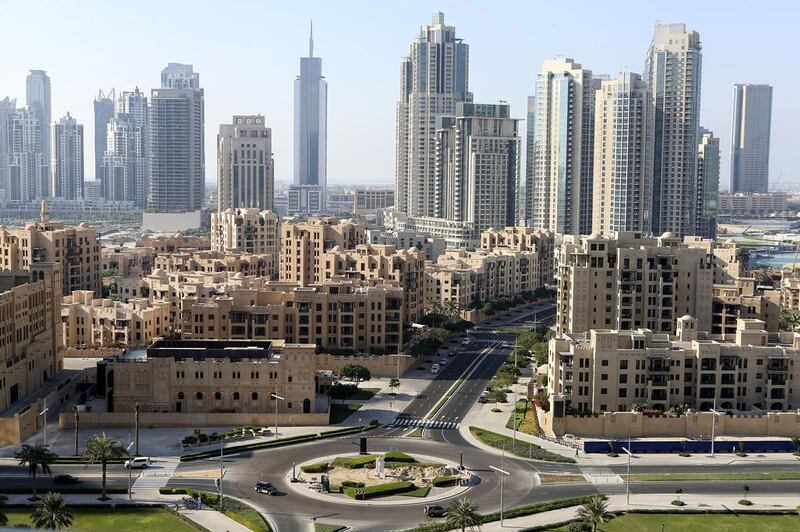The government of Dubai has unveiled a 2015 public expenditure plan for growth and jobs in a deficit-free budget that hits levels not seen since the global financial crisis.
The budget was approved by Sheikh Mohammed bin Rashid, Vice President and Ruler of Dubai. It will lead to the creation of 2,530 jobs for citizens in the emirate. “The human being is the wealth of the nation,” Sheikh Mohammed said.
At Dh41 billion, up 9 per cent from last year, the budget will see the biggest public expenditure since 2009. It aims to continue to stimulate economic growth, while “strict financial policies” are expected to produce an operating surplus of Dh3.6bn.
The budget comes against the background of falling oil prices which has forced policymakers across the GCC region to rethink their financial forecasts.
Oil will account for only 4 per cent of Dubai government revenues, the budget revealed, down 5 per cent from last year. “The budget accordingly does not rely on oil revenues,” a statement from WAM, the government news agency, said.
Revenue is forecast to rise 11 per cent this year, of which by far the largest contributors are charges for government services – accounting for 74 per cent of the total – 22 per cent higher than last year.
“The increase reflects the projected growth rates for the principality, and the evolution and diversity of government services. This increase is due to the remarkable real economic growth in 2014,” the statement said.
Tax revenues – from customs and excise charges and the corporation tax imposed on foreign banks in Dubai – will increase by 12 per cent, and comprise 21 per cent of the total.
On the spend side, wages and salaries will account for 37 per cent of government spending, “underscoring the government’s desire to support recruitment and human resource support in the emirate. This is a continuation of the settlement policy and creating new job opportunities for citizens”, the statement said. About 1,650 posts were created in 2014.
General and administrative expenses, capital expenditure, grants and subsidies will account for 44 per cent of spending in 2015. “The government is keen to keep the development, advancement and support of government institutions to provide better government services for citizens and residents on its territory, as well as government support for housing bodies and institutions, sports and public welfare associations, charities and the media, to achieve the well-being of citizens and residents, and raise the rates of happiness in the community,” the budget statement added.
“The government continues to support infrastructure projects by allocating 13 per cent of government spending to infrastructure, and the hard work of building excellent infrastructure contributes to making the emirate attractive to investment. Dubai is planning to maintain the size of its investments in infrastructure over the next five years,” it said.
The budget re-emphasises financial support to security, justice and safety, as “one of the most important authorities for the community”. Approximately 22 per cent of spending has been allocated for this purpose.
Abdulrahman Saleh Al Saleh, director general of Dubai’s Department of Finance, said: “Dubai managed to move beyond budget deficit. The benefit of the budget has reflected the directives of Sheikh Hamdan bin Mohammed, Crown Prince of Dubai and Chairman of the Executive Council, who emphasised the need for attention to the social aspect and development of investment incentives, which contributed to the high ranking in global competitiveness.”
Mr Al Saleh said: “The break-even point between government revenues and expenditures has come as a result of strict financial policies of the Supreme Fiscal Committee, chaired by Sheikh Ahmed bin Saeed, which focused on increasing spending for the development of the economy, infrastructure, communications, security, justice and safety, government services and excellence, and social development.”
fkane@thenational.ae
Follow The National's Business section on Twitter





